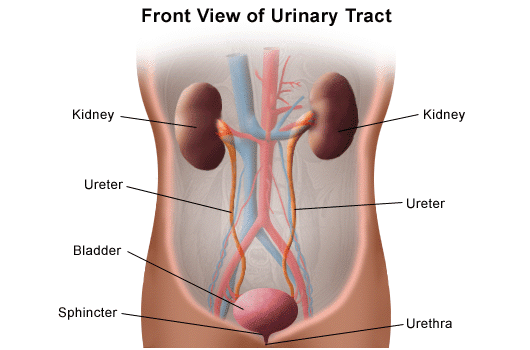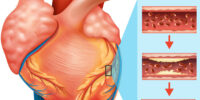What Is The Urinary System? Kidneys, Bladder, And Urine Production

The urinary system is an essential part of the human body responsible for filtering waste products from the blood and eliminating them as urine. The system consists of the kidneys, ureters, bladder, and urethra, working in tandem to maintain the body’s fluid and electrolyte balance. Understanding the urinary system’s structure and function is crucial in diagnosing and treating urinary system disorders.
The kidneys are the central organs of the urinary system, responsible for filtering the blood and removing waste products. The ureters transport the filtered urine from the kidneys to the bladder, where it is temporarily stored until it is eliminated from the body through the urethra.
The urinary system is also responsible for regulating blood pressure and producing hormones that help maintain bone health. This article will delve into the details of the urinary system’s structure and function, common disorders and diseases that affect it, and tips for maintaining a healthy urinary system.
Key Takeaways
- The urinary system is composed of the kidneys, ureters, bladder, and urethra, and is responsible for filtering blood, removing waste products, and regulating fluid and electrolyte balance.
- Nephrons are the functional units of the kidneys, consisting of a glomerulus and tubule that work together to filter blood.
- Urinary system disorders and diseases include urinary tract infections, kidney stones, and urinary incontinence, among others.
- Maintaining a healthy urinary tract through lifestyle changes such as staying hydrated, practicing good hygiene, and avoiding holding in urine for extended periods of time is crucial for overall health and wellbeing.
The Role of the Kidneys in Filtering Blood
The kidneys play a critical role in filtering blood by removing waste products and excess fluid, while also maintaining a balance of electrolytes and other essential substances in the body.
The kidneys are bean-shaped organs located on either side of the spine, and they are responsible for filtering about 200 liters of blood per day.
Blood enters the kidneys through the renal arteries, and waste products are removed as it passes through the nephrons, the functional units of the kidneys.
The nephrons consist of a glomerulus and a tubule, and they work together to filter blood. The glomerulus acts as a filter, removing waste products and excess fluid from the blood, while the tubule reabsorbs the necessary substances such as glucose, amino acids, and salts.
The remaining fluid, which is now urine, is then transported to the bladder through the ureters.
The kidneys also play a role in regulating blood pressure and producing hormones that stimulate red blood cell production and control calcium metabolism.
Overall, the kidneys are essential for maintaining a healthy balance of fluids and electrolytes in the body.
Ureters: Transporting Urine from the Kidneys to the Bladder
Ureters, slender muscular tubes measuring between 25 and 30 centimeters in length, play a crucial role in transporting urine from the renal pelvis of the kidney to the bladder.
Once urine is produced by the kidneys, it flows into the renal pelvis, which is the funnel-shaped cavity that connects the kidney to the ureter.
The ureter then uses peristalsis, a wave-like muscle contraction, to move urine from the renal pelvis to the bladder.
This process occurs continuously, allowing the bladder to fill with urine until it is ready to be expelled from the body.
The ureters are made up of three layers of tissue, including an outer layer of fibrous tissue, a middle layer of smooth muscle, and an inner layer of mucosa.
The smooth muscle layer is particularly important in the function of the ureters because it allows the ureters to contract and relax in a coordinated manner, which helps to propel urine towards the bladder.
The ureters also have one-way valves that prevent urine from flowing back into the kidneys, which could cause damage to the kidneys.
Overall, the ureters play a critical role in the urinary system by transporting urine from the kidneys to the bladder, allowing for the elimination of waste products from the body.
The Bladder: A Temporary Storage for Urine
Located in the lower part of the pelvis, the bladder is responsible for temporarily storing the liquid waste produced by the kidneys. It is a muscular organ that can hold up to 600 mL of urine in an average adult. When the bladder reaches its capacity, it sends a signal to the brain to initiate the urge to urinate.
The bladder has different layers of muscle that help it contract and relax, allowing urine to flow out of the body through the urethra. The neck of the bladder is surrounded by a ring of muscle called the sphincter, which helps to control the flow of urine.
The sphincter remains contracted to keep urine in the bladder until it is time to urinate. When the bladder is full and it is time to urinate, the sphincter relaxes, and the bladder muscles contract, pushing urine out of the bladder and through the urethra.
The Urethra: Eliminating Urine from the Body
One important component of the urinary tract is the urethra, which serves as the final pathway for the elimination of urine from the body. The urethra is a muscular tube that extends from the bladder to the external urethral orifice, which is the opening through which urine is expelled from the body. The length of the urethra varies between males and females, with males having a longer urethra due to the additional function of transporting semen during ejaculation.
The urethra is lined with mucous membranes and contains smooth muscle fibers that contract to expel urine from the bladder. The process of urination, also known as micturition, is controlled by the nervous system and involves the relaxation of the internal urethral sphincter and the contraction of the detrusor muscle in the bladder. The urethra also contains external urethral sphincter muscles, which are under voluntary control and allow for the regulation of urine flow. Overall, the urethra plays a crucial role in the urinary system by facilitating the elimination of waste products from the body.
| Urethra Function | Description |
|---|---|
| Transport | The urethra serves as the final pathway for the elimination of urine from the body. |
| Muscle Contraction | The urethra contains smooth muscle fibers that contract to expel urine from the bladder. |
| Urination Control | The process of urination is controlled by the nervous system and involves the relaxation of the internal urethral sphincter and the contraction of the detrusor muscle in the bladder. |
Nephrons: The Functional Units of the Kidneys
Nephrons are the microscopic structures within the kidneys that are responsible for filtering blood and regulating the body’s fluid and electrolyte balance. Each kidney contains over a million nephrons, making them the functional units of the kidneys.
Nephrons are composed of a glomerulus and a tubule, and they work together to filter blood and produce urine. The glomerulus is a tiny network of blood vessels that acts as a filter, allowing small molecules such as water, glucose, and electrolytes to pass through while preventing larger molecules such as proteins and blood cells from entering the tubule.
The tubule then reabsorbs some of these filtered molecules back into the bloodstream while excreting the remaining waste products as urine. The process of filtration and reabsorption in the nephrons is tightly regulated by hormones and other signaling molecules to maintain a delicate balance of fluids and electrolytes in the body.
Hormones and the Regulation of Urine Production
Hormones play a crucial role in regulating the delicate balance of fluids and electrolytes in the body, ensuring that waste products are excreted efficiently and effectively. The endocrine system, which is responsible for the production and release of hormones, interacts with the urinary system to regulate urine production.
Two key hormones involved in this process are antidiuretic hormone (ADH) and aldosterone.
ADH is produced by the hypothalamus and released by the pituitary gland in response to changes in the body’s fluid levels. This hormone acts on the kidneys to increase water reabsorption, thereby reducing the amount of urine produced.
In contrast, aldosterone is produced by the adrenal glands and acts on the kidneys to increase the reabsorption of sodium and water while promoting the excretion of potassium. This hormone helps to maintain electrolyte balance in the body and regulate blood pressure.
Together, these hormones play a crucial role in the regulation of urine production and maintaining the body’s fluid and electrolyte balance.
Common Urinary System Disorders and Diseases
The previous subtopic discussed the role of hormones in regulating urine production. However, there are various disorders and diseases that can affect the urinary system and disrupt its normal functioning. These conditions can range from minor infections to more serious conditions that may require medical intervention.
In this section, we will discuss some of the most common urinary system disorders and diseases.
One of the most common urinary system disorders is urinary tract infection (UTI), which occurs when bacteria infect the urinary tract. Symptoms of UTI include frequent urination, painful urination, and a strong urge to urinate.
Other common disorders include kidney stones, which are hard deposits that form in the kidneys and can cause severe pain, and urinary incontinence, which is the involuntary release of urine. Additionally, some people may experience urinary retention, which is the inability to fully empty the bladder, or urinary urgency, which is a sudden and intense urge to urinate.
It is important to seek medical attention if any of these symptoms are experienced, as untreated conditions can lead to more serious complications.
Tips for Maintaining a Healthy Urinary System
Maintaining a healthy urinary tract is crucial for overall health and wellbeing, and there are several lifestyle changes that can help prevent urinary system disorders and diseases.
First and foremost, it is important to stay hydrated by drinking plenty of water throughout the day. This helps to flush out toxins and bacteria from the urinary system.
Additionally, practicing good hygiene habits such as wiping front to back after using the toilet can help prevent the spread of bacteria from the anus to the urethra.
Another important tip for maintaining a healthy urinary system is to avoid holding in urine for extended periods of time. This can lead to a buildup of bacteria in the bladder and increase the risk of urinary tract infections.
Finally, incorporating probiotics into your diet can promote a healthy balance of bacteria in the urinary system, which can help prevent infections.
By making these simple lifestyle changes, individuals can help promote a healthy urinary system and reduce the risk of developing urinary system disorders and diseases.
Conclusion
In conclusion, the urinary system plays a vital role in maintaining the body’s homeostasis.
The kidneys filter the blood, removing waste products and excess fluids, which are transported to the bladder via the ureters.
The bladder stores urine temporarily until it is eliminated from the body through the urethra.
The nephrons, the functional units of the kidneys, regulate the production of urine, and hormones play a crucial role in this process.
However, the urinary system is prone to disorders and diseases, such as urinary tract infections, kidney stones, and kidney failure.
To maintain a healthy urinary system, individuals should practice good hygiene, stay hydrated, and consume a balanced diet.
Early detection and treatment of urinary system disorders are crucial for preventing complications and maintaining optimal health.








